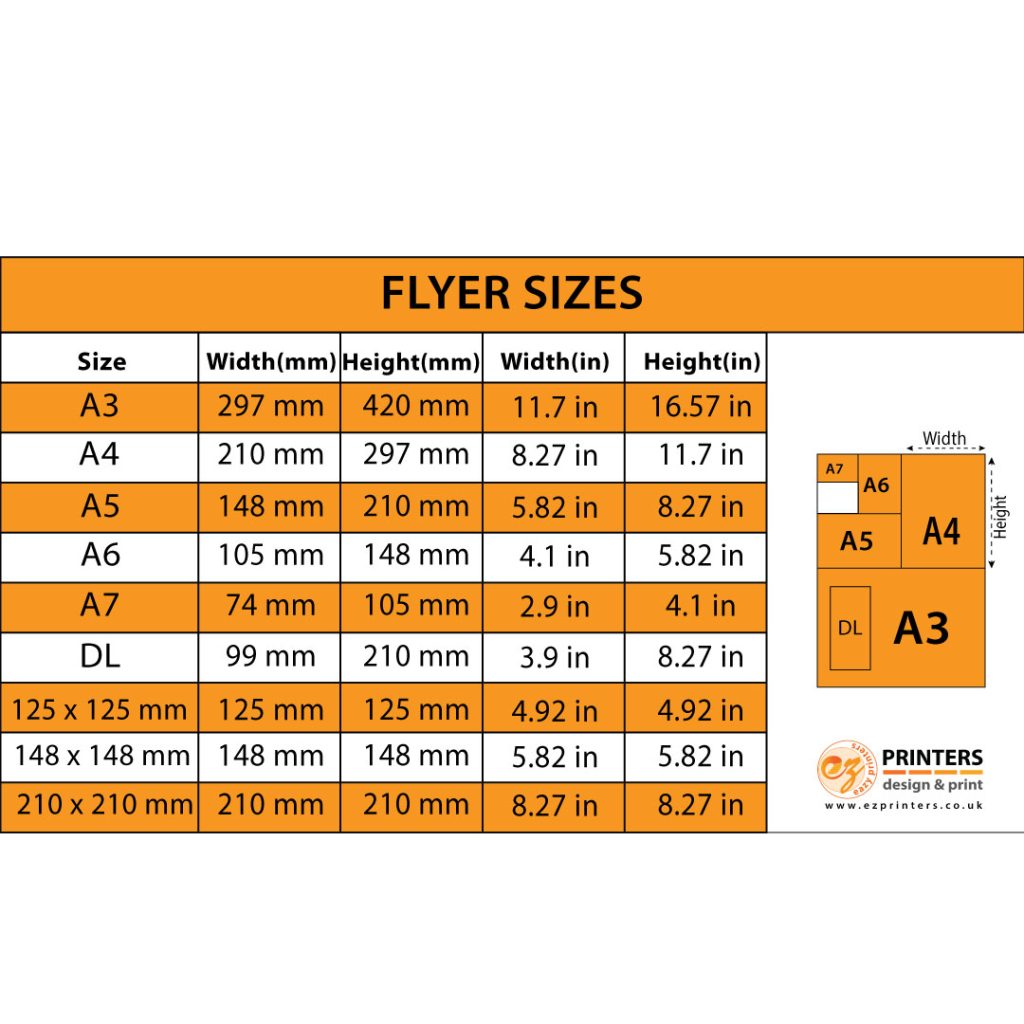Flyers are a versatile and effective way to promote your business or event. They can be handed out at trade shows, placed on bulletin boards, or mailed to potential customers. But with so many different flyer sizes available, it can be tough to know which one to choose.
In this guide, we’ll take a look at the most popular flyer size and discuss the pros and cons of each one. We’ll also give you some tips on how to choose the right flyer size for your needs.
Standard Flyer Size
The standard flyer size is 8.5 x 11 inches. This is the same size as a piece of letter paper, so it’s easy to print and distribute. Standard flyers are also a good size for mailing in envelopes.
Rack Card Flyer Size
Rack card flyers are typically 4 x 9 inches in size. They’re designed to fit in display racks in stores and restaurants. Rack card flyers are a good option for businesses that want to promote their products or services to people who are already in the area.
Half Sheet Flyer Size
Half-sheet flyers are 5.5 x 8.5 inches in size. They’re a good middle ground between standard flyers and rack card flyers. Half-sheet flyers are large enough to include all of the necessary information, but they’re also small enough to be easily carried around.
Other Flyer Sizes
There are a number of other flyer sizes available, including A3, A4, A5, and A6. These sizes are typically used for more specialized applications. For example, A3 flyers are often used for posters, while A5 flyers are sometimes used for invitations.
Choosing the Right Flyer Size
When choosing a flyer size, there are a few factors to consider:
- Your audience: Who are you trying to reach with your flyer? If you’re targeting businesses, you may want to choose a larger size, such as A3 or A4. If you’re targeting consumers, you may want to choose a smaller size, such as rack card or half sheet.
- Your budget: Printing larger flyers can be more expensive. If you’re on a tight budget, you may want to choose a smaller size.
- Your design: Consider how much information you need to include on your flyer. If you have a lot of information, you may want to choose a larger size. If you only have a small amount of information, you may be able to get away with a smaller size.
Conclusion
The right flyer size for you will depend on your specific needs. But hopefully, this guide has given you a good starting point. If you’re still not sure which size to choose, it’s always a good idea to consult with a professional designer.
Some Tips for Designing and Printing Flyers
Here are a few tips for designing and printing flyers:
- Use high-quality images and graphics.
- Make sure your text is easy to read.
- Use a bold headline to grab attention.
- Include a clear call to action.
- Have your flyers professionally printed.
By following these tips, you can create a perfect flyer for you.
I hope this flyer size guide will help you to choose the perfect flyer and promote your business or event effectively.

